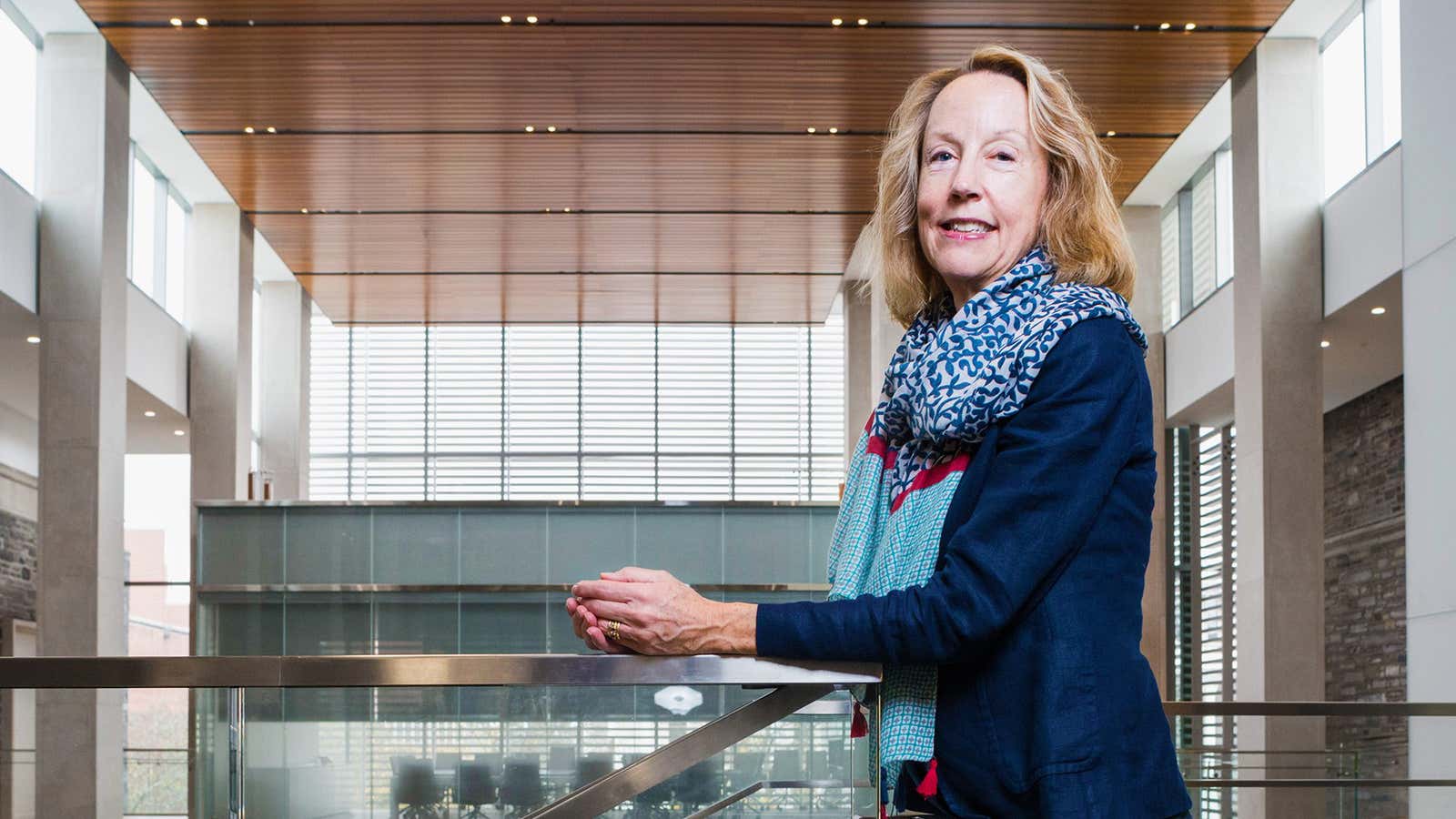Anne Case knows exactly what she likes about economics. “You can follow your nose. See where data and theory lead you. Discover things you never dreamed of.”
She’s done just that, studying the impact of AIDS in sub-Saharan Africa, pricey funerals in South Africa, the link between early life health and old-age cognition in the US, and most recently, the rise in “deaths of despair” for working-class, white America. Case received her PhD in economics from Princeton University, where she is now an award-winning researcher and professor.
She also knows what she dislikes about economics—the aggressive, ambitious-at-the-expense-of-others culture it promotes.
“When I go to seminars in other disciplines, the tenor of the seminars tends to be a lot less about scoring points and…nail[ing] the speaker to the blackboard,” she said in an interview published this month on the website of the Federal Reserve Bank of Minneapolis. In economics, she says, presenting your latest findings can feel more like a testimony in front of a firing squad than a collaborative space where other experts help you sharpen your research. One of the problems with this kind of culture, Case believes, is “women oftentimes don’t respond as well to that as men do.”
In the US, less than a third of doctorates in economics are awarded to women, compared to 56% in STEM subjects. (Economics is sometimes considered part of STEM, but in this particular study, it was not.) Only 13% of tenured economic faculty spots go to women. Studies show that women in economics find it harder to publish in peer-reviewed journals, and are less likely to gain tenure if they work in teams.
The failure to see women in economics boiled over this past summer, when Alice Wu, an undergraduate at Berkeley, used cutting-edge, machine-learning algorithms to categorize comments made on EconJobRumors.com (paywall), an anonymous site that discusses economics-industry job openings and hirings. In what would become an award-winning senior thesis, Wu found that EconJobRumors commenters were more likely to describe men with words like “advisor,” “mathematician,” and “nobel”; women were more likely deemed “hotter,” “gorgeous,” “lesbian,” and “feminazi.”
Wu’s findings, while important, aren’t necessarily representative of the entire field. “I think it’s an extreme view. I don’t think it’s a representation of everyone in the profession,” University of Bristol economics professor Sarah Smith told Marketplace.
But they do suggest the field isn’t entirely friendly to women.
“My first graduate degree was in public policy, and all during my undergraduate years where I studied math and economics, and in public policy school, I never felt one whit of discrimination,” recalls Case. “But the minute I started a PhD in economics, it was apparent. That was a long time ago now, but from that day until today, I have felt that if I want to be heard, I have to be willing to come in and be ready to fight, with sharp elbows.”
She worries the way PhD programs are organized makes such habits tough to uproot. The old-guard’s prejudice gets passed down to male graduate students, who later become faculty themselves.
This October, the American Economic Association announced an ad-hoc committee that would look into what keeps women out of economics in the US, and present guidelines for the organization come 2018. “I hope it helps,” Case says, “but I think it would be a stretch to say I’m optimistic.”
